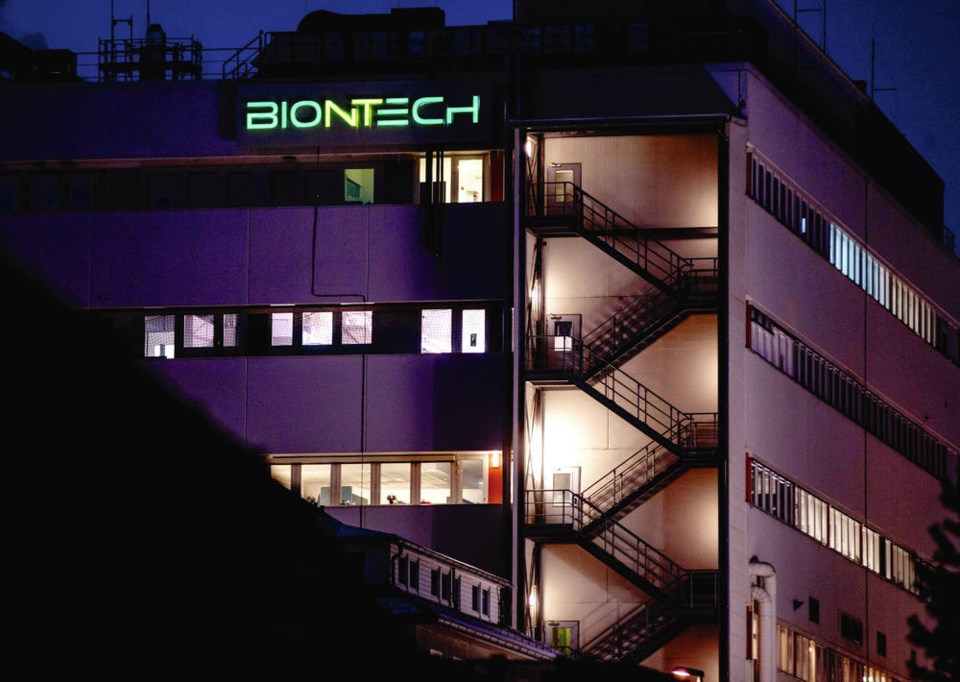Troubling new revelations have surfaced about how pharmaceutical companies price their vaccines.
Marcus Grill and Georg Mascolo, writing in the German newspaper Süddeutsche Zeitung, have uncovered correspondence between Pfizer/BioNTech and the European Commission that was meant to be kept strictly confidential.
Pfizer/BioNTech is the conglomerate that developed one of the first, and possibly most effective, COVID-19 vaccines. In mid-June of last year, BioNTech’s CEO wrote to the commission, offering a supposedly generous deal.
If the commission would agree to purchase 500 million doses, they could have the vaccine for 54.08 euros a dose. This price was represented as the highest discount offered to any country, but it was available only on condition that total secrecy was observed.
That’s 20 times the cost of the vaccine Astra Zeneca developed with Oxford University.
But the real story is how Pfizer/BioNTech justified its offer. You would think a vaccine, or any other medication, would be priced on the basis of the cost to develop it, plus a markup for profit.
You would be wrong. The confidential letter written by BioNTech to the commission makes it clear that an entirely different methodology was used. Specifically, the company, employing an industry-wide practice we now learn is commonplace, based its pricing on the medical and economic benefits of its product.
Since, as BioNTech pointed out, the COVID-19 pandemic could be expected to cost the EU 1.4 trillion euros per year, the company felt entitled to be reimbursed with that in mind.
In the end, a lower price was negotiated, believed to be in the region of 15.50 euros, but likely well beyond the company’s cost of development.
This is scandalous in two respects. First, BioNTech was given government funding to develop its vaccine. The company also received a contribution of $55 million US from the Bill and Melinda Gates Foundation.
But more importantly, this is a barefaced attempt to cash in on a global tragedy. As the chairman of Germany’s drug commission put it: “I see [the BioNTech offer] as a pursuit of profit that is in no way justified in the current situation of the pandemic.”
Essentially, what this correspondence reveals is that pharmaceutical firms price their drugs not on the cost of production, but on the basis of whatever they can grind out of sometimes vulnerable customers.
Now it may be argued that there’s nothing unusual about a company upping its price when the demand for its product rises.
True. But there are aggravating factors here. First, we’re talking about an essential medical treatment that is literally life-saving.
It’s morally reprehensible to take advantage of that situation by gouging a helpless public. This is the equivalent of sa���ʴ�ý Hydro pricing electricity through the roof in the dead of winter because they know we’d freeze in the dark without it.
Second, drug firms conceal this pernicious methodology by insisting that all communications are confidential, and all deals entered into are kept secret.
That, in itself, is telling. It speaks to the moral affront these companies know they are committing.
I’ve written about this fact before. Every drug contract negotiated by the government of sa���ʴ�ý or by the provinces contains a secrecy clause imposed by the industry.
I assumed this was to improve corporate negotiating positions. If sa���ʴ�ý buys a drug for $10 a dose less than Saskatchewan paid, the company doesn’t want Saskatchewan (or anyone else) to know that.
But now we see a different reason for this secrecy. It’s not to strengthen the firm’s bargaining leverage. Nor is it to protect legitimate proprietary information.
It’s to provide cover for the equivalent of corporate blackmail.



